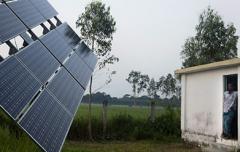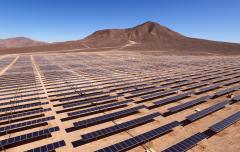New report guides governments on designing off-grid solar policies
The significant role that off-grid, decentralized energy solutions can play in achieving universal energy access goals is no longer a subject of debate. As off-grid technology costs keep falling, the International Energy Agency (IEA) recently estimated that by 2030, 195 million people, or 29% of the world’s unelectrified population, will gain electricity from off-grid solutions, especially off-grid solar.
But what will it take to accelerate investment so that the off-grid sector can meet or exceed the IEA’s forecast? One of the key drivers is supportive government policies and regulations that incentivize public and private sector participation in the fast-growing space.
If governments do not send the right policy signals – which is the case in many countries, judging from the Regulatory Indicators for Sustainable Energy (RISE) report released earlier this year – the off-grid sector’s vast potential will not be realized.
To help support this, Global Off-Grid Lighting Association (GOGLA), in partnership with Lighting Global, Power Africa, the African Development Bank and Sustainable Energy for All, have produced a new report looking at key policy and regulatory issues for off-grid solar.
Providing Energy Access Through Off-Grid Solar: Guidance for Governments offers advice to governments in designing effective policies and regulations that will enable the off-grid solar sector to have a far bigger role as part of integrated national electrification strategies.
The guide outlines the core elements of supportive policy frameworks that have been shown to work in accelerating electricity access in key markets. It also provides best practice examples and resource references, with input from companies, development finance players and other stakeholders operating in Africa, South Asia and other key regions, that governments can learn from. By raising awareness and highlighting successful policies that can be replicated, the report’s authors hope to catalyze improved policy decision-making in other countries that will further advance energy access goals.
Photo credit: Climate Investment Funds



